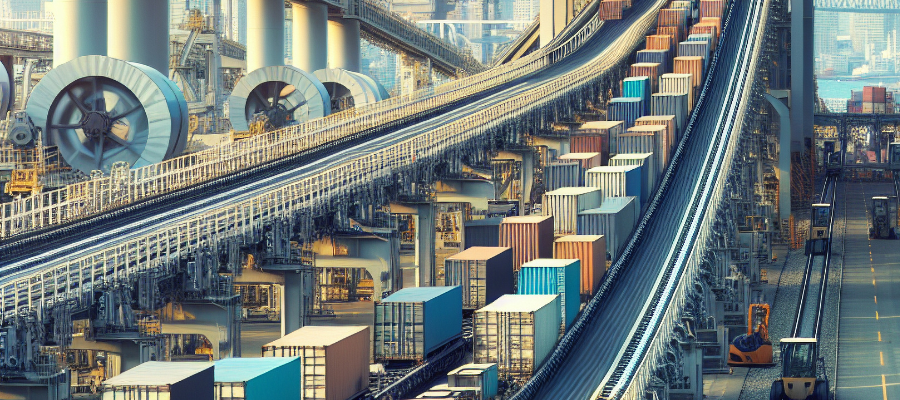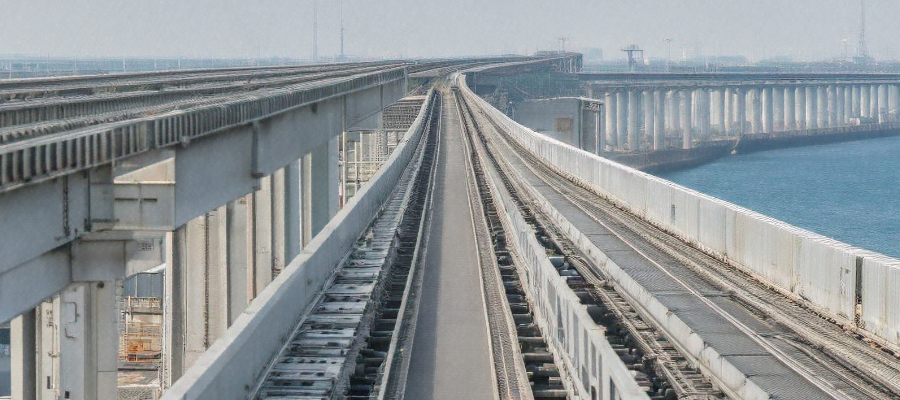🕒 Article read time: 3 minutes
Japan's colossal cargo conveyor belt system

The Japanese government plans to connect major cities with automated, zero-emission logistics links to transport millions of tons of cargo quietly and efficiently, removing tens of thousands of trucks from the roads.
The Japanese government plans to connect major cities with automated, zero-emission logistics links to transport millions of tons of cargo quietly and efficiently, removing tens of thousands of trucks from the roads.
Japan’s population is falling at a rapid rate and, according to a recent study by Nomura Research Institute, the amount of delivery drivers in Japan is set to fall from 660,000 in 2020 to just 480,000 by 2030.
With online shopping continuing to escalate, there are genuine concerns that the transport industry will not be equipped to meet freight demands in the future.
So, what do you do? Well, Japan’s Ministry of Land, Infrastructure, Transport and Tourism has come up with an ambitious plan to create an Autoflow-Road conveyor belt system between Tokyo and Osaka which could carry the same amount of freight as 25,000 truck drivers every single day.
The 310-mile conveyor belt system not only addresses the logistics issue – alleviating traffic congestion on the country’s busiest highways - but will also have a positive knock-on effect by reducing carbon emissions from freight transport in the country.
The Autoflow-Road will be built in a variety of locations: underneath major highways; on above-ground tracks in the middle of roads; and along hard shoulders. Each pallet is estimated to be able to hold one ton of cargo.
Logistics UK's Head of Engineering Policy, Phil Loyd commented: "The Autoflow-Road project in Japan is a very exciting innovation and this will be an incredible feat of engineering once completed.
"Logistics UK had a similar idea for the UK which we showcased at a Zenzic event a few years ago as part of our presentation of User Cases that could be considered as part of the route to autonomy.
"Our idea was to use a hyperloop system from ports to distribution centres using old railway tracks.
"I think Japan’s Autoflow road probably has greater merit – again this is something we’ve suggested for the UK, dedicated 'auto-flow' lanes on the motorway for connected autonomous vehicles.
"Logistics UK will watch with keen interest how this unfolds."
The Japan Ministry of Land, Infrastructure, Transport and Tourism has taken its inspiration from the mining industry, specifically the 23km (14 mile) conveyor belt in Kōchi prefecture and the 100km (62 mile) belt in Western Sahara.

It might be a while before we see the plan come to fruition (the ministry has suggested a completion date circa 2034), and cost estimates vary from seven billion yen (£33 million) to 80 billion yen (£388 million).
The ministry is now looking to proceed with discussions for the project and is courting private companies to fund it.
In case you were wondering, a similar distance for the Autoflow Road to cover in the UK would be the 294 miles it would need to cover to connect Folkestone and Liverpool.
Illustrations created using generative tools.
Published On: 18/11/2024 12:03:50
